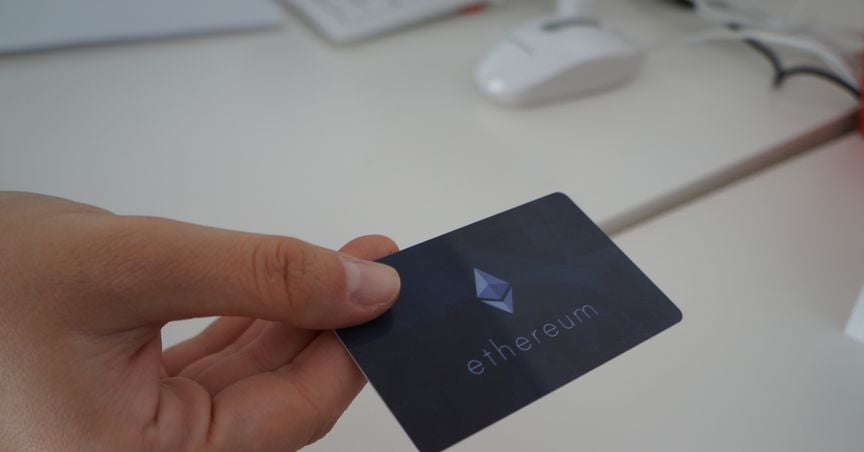Highlights
- The combined value of all digital tokens soared to US$2.80 trillion in November 2021, according to data available on CoinMarketCap.
- Looking at growing investor interest in crypto assets, financial institutions are launching crypto cards to attract new customers.
- Unlike normal credit cards, crypto credit cards offer rewards in cryptocurrencies.
Cryptocurrencies’ march towards the mainstream is picking up steam around the world with the number of people adopting this new asset class rising ever since its inception. This is evident from the growth of cryptocurrencies' market capitalisation.
In the year 2020 alone, the crypto market cap grew by around 300% annually to US$750 billion. The year 2021 was even better for the crypto market with the combined value of all digital tokens soaring to US$2.80 trillion in November 2021, according to data available on CoinMarketCap. Most of the cryptocurrencies touched their all-time highs in November last year.
Also Read: Decentraland (MANA) vs The Sandbox (SAND): How do they stack up?
Looking at this remarkable growth of the crypto market, many financial institutions (new and old as well) are coming out with products to capitalise on this investor interest. Crypto credit card, which offers rewards in cryptocurrencies, is one such product, which is helping financial institutions attract new clients.
How do crypto credit cards work?
Crypto credit cards work in the similar way as that of other credit cards. But the only difference is that in crypto credit cards, you are given rewards on your monthly spends in cryptocurrencies. However, each credit card differs in the way they process these cryptocurrency rewards to their cardholders. For example, BlockFi Visa Signature credit cards offer 1.5% of total eligible transaction value in crypto as rewards. But for the first 90 days of card membership, this reward rate is as high as 3.5%. As there are multiple cryptocurrencies, BlockFi rewards its members with BlockFi Cryptocurrency Rewards Points, which can be converted into any cryptocurrency later.
Some of the crypto credit cards allow you to make payment for your credit card bill in cryptocurrencies lying in your crypto wallet.
Like crypto credit cards, crypto debit cards are also available. Coinbase and Crypto.com issue crypto debit cards to their customers. These debit cards allow you to spend your crypto holdings for online and offline purchases.
Worth mentioning here is that using these cards affects your credit score in the same way traditional cards do. If you are contemplating to apply for one such card, you need to remember that there are annual membership or transaction fees associated with these cards. Make sure, you check these and other terms and conditions before applying for one such card.
Things to consider while applying for a crypto credit card
Crypto credit cards are a bit more complex than normal credit cards in the sense that they offer cryptocurrencies as rewards. If you hold these crypto rewards in your digital wallet, then there is a possibility of value appreciation/depreciation in the future, and you may be liable to pay tax on the potential gains made on these crypto assets when you decide to sell them. So, you also need to consult a tax expert before you decide to apply for such cards.
Also Read: Mines of Dalarnia (DAR) crypto surges 92% in a day, volume soars over 2000%
Further, each crypto card offers a specific portfolio of cryptocurrencies that you can earn. However, if you are looking to invest in a specific crypto you need to find out if it is supported by the card that you are applying for as well as by the exchange.
Crypto Cards in Australia
At present, a range of crypto cards are available in Australia. These cards either work as a debit card funded by your crypto wallet or as a prepaid card that you need to preload with cryptocurrencies. However, crypto credit cards are yet to be available in Australia. Here are some of the crypto cards available in Australia.
The CoinJar Card
It is Australia's first cryptocurrency debit card backed by Mastercard. When you use this card, you get the option to choose which crypto you want to spend for conversion into cash. This card has a reward programme and you can add a digital wallet to enjoy these rewards.
The Crypto.com Visa Debit Card
This is the most famous crypto debit card available in Australia. You can top up this card using cryptocurrency or fiat currency, using bank transfer or through a normal credit/debit card. After topping up this card you can use it like a normal debit card for online and offline shopping. This can also be used at ATMs to withdraw cash.
Also Read: Steem (STEEM) crypto surges 60%, volume explodes. What is driving this rally?
Around 20 fiat currencies such as AUD, USD, EUR and GBP are supported by this card while you can top up your card using more than 250 digital tokens such as BTC, ETH, XRP and CRO. You can also manage your account using the Crypto.com App.
The BTC.com.au ATM/EFTPOS Card
This is a prepaid card available exclusively to BTC.com.au, a Sydney-based privately owned startup, customers. The users of this card can buy cryptocurrencies, pay bills, spend and withdraw cash from their crypto holding through ATMs. You can also transfer funds to Australian bank accounts using this card. Cryptos that can be used to top up the BTC.com.au ATM/EFTPOS Card are BTC, ETH, LTC, Bitcoin Cash (BCHABC), OmiseGo and Ripple(XRP). The company says, in the near future, it will support additional currencies.
Risk Disclosure: Trading in cryptocurrencies involves high risks including the risk of losing some, or all, of your investment amount, and may not be suitable for all investors. Prices of cryptocurrencies are extremely volatile and may be affected by external factors such as financial, regulatory, or political events. The laws that apply to crypto products (and how a particular crypto product is regulated) may change. Before deciding to trade in financial instrument or cryptocurrencies you should be fully informed of the risks and costs associated with trading in the financial markets, carefully consider your investment objectives, level of experience, and risk appetite, and seek professional advice where needed. Kalkine Media cannot and does not represent or guarantee that any of the information/data available here is accurate, reliable, current, complete or appropriate for your needs. Kalkine Media will not accept liability for any loss or damage as a result of your trading or your reliance on the information shared on this website.






